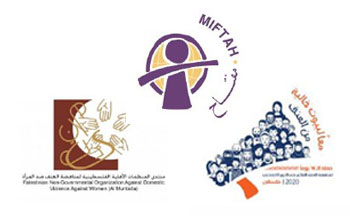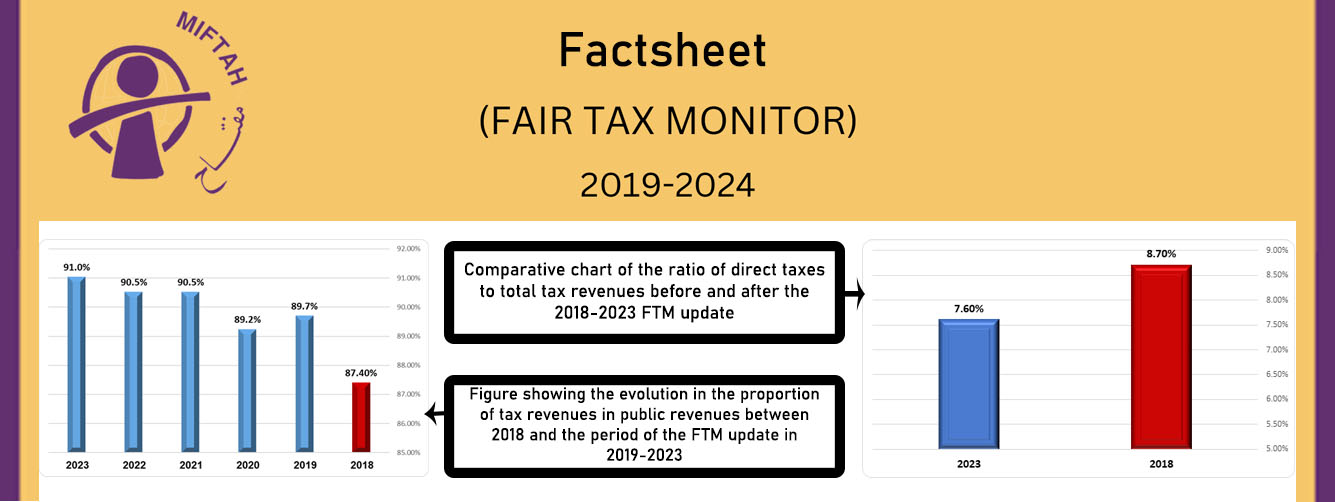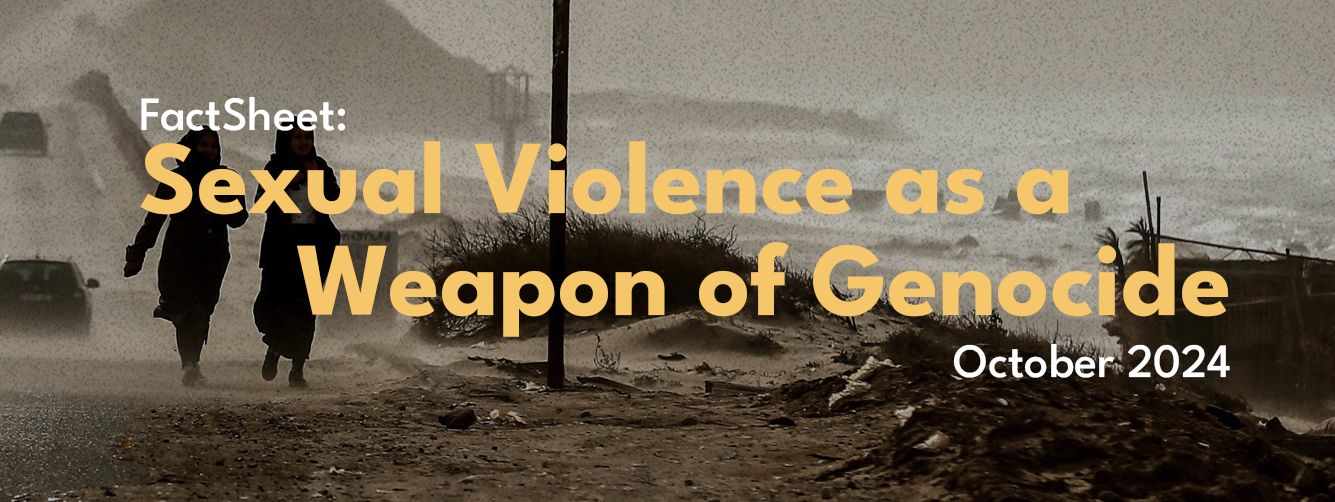
Introduction:
This paper showcases facts and figures about the Israeli annexation plan for the occupied Jordan Valley, which is considered the West Bank’s breadbasket. The plan is part of the US “Deal of the century” aimed at eliminating the Palestinian cause. This paper will attempt to highlight the projected impacts of the annexation plan on Palestinian women in this region.
Snapshot of the Jordan Valley (facts and figures)
The future of 65,000 Palestinians living in the Jordan Valley is currently hanging in the balance as they wait to see when and how Israel plans to annex the Valley and therefore isolate them from other areas of the West Bank. On January 28, 2020, outgoing President Donald Trump officially announced his Middle East “Deal of the Century”, presenting a concept paper that would allow Israel to annex large parts of the occupied West Bank thus leaving Palestinians with control of over only 15% of historic Palestine. However, according to the Israeli organization “Peace Now”, the area of the Jordan Valley Israeli Prime Minister Benjamin Netanyahu plans to annex is larger than even that proposed in the Trump plan. According to the “Deal of the century”, Israel is allowed to annex approximately 964 square kilometers but according to the plan Netanyahu put forth, the area slated for annexation is around 1,236 square kilometers of the Jordan Valley.
The repercussions of Israel’s annexation plan for West Bank settlements and the Jordan Valley will be ‘catastrophic” for Palestinians. One of the major objectives of this plan is to take control of water resources, especially in the Jordan Valley, which will adversely impact the West Bank breadbasket in its entirety. The annexation of the Jordan Valley will result in the Palestinians losing 560 to 600 million cubic meters of water in addition to the loss of many economic opportunities of no less than $3.5 billion. It will also threaten Palestinian food and water security given that most West Bank areas depend on the agricultural produce of the Jordan Valley such as vegetables.
Violations against women in the Jordan Valley:
After the announcement of the annexation plan, there was an uptick in the number of violations in the Jordan Valley, particularly in residential and agricultural areas, including Israeli army and settler raids and property vandalism in a bid to drive Palestinians off their land. The following violations were recorded as part of a survey conducted by MIFTAH.
- 74% of women stated their properties had been assaulted
- 94% said their ability to visit their family and relatives in other areas was negatively impacted
- 88% said their fear from settler attacks resulted in an increased level of conservatism within their communities and in girls being deprived of education and work opportunities.
- 78% said they believed violations by occupation authorities caused an increase in domestic violence
- 74% said they had abused or yelled at their children due to Israeli violations
- 46% said they had been subjected to physical, verbal or sexual violence from their husbands or a family member
- 93% said Israeli occupation violations such as closures, land confiscation, restrictions on accessing sources of living and others, negatively impacted the livelihoods of women and their families in particular.
These violations make women more vulnerable to health risks such as miscarriages. When their areas of residence are closed, this negatively impacts their ability to reach clinics or hospitals to receive treatment. It also hampers the ability of preventative medicine teams and the Ministry of Health from maintaining a presence in their areas, which has exposed these communities to the spread of Covid-19 over and above direct Israeli army and settler violations that leave them vulnerable to the virus.
Psychological impacts:
- 98% of women stated they felt anxiety and fear from Israeli occupation violations and settler attacks
- 96% said they felt anxious when Israeli occupation forces raided and searched their homes; the same percentage of women felt ongoing anxiety over their family members being killed, arrested or beaten at the hands of Israeli soldiers or settlers.
- 94% said they were constantly on edge because of the sound of bullets or bombs or from seeing soldiers or settlers.
- 88% said they were anxious over the confiscation of their land or facilities by Israeli forces
- 59% considered that Israeli restrictions in this period have negatively impacted the ability of legal teams from reaching their places of residence.
- 44% believe Israeli violations and restrictions hindered women’s access to legal parties in order to file complaints over attacks by Israeli soldiers and settlers.
International law and annexation:
- The Jordan Valley is considered an integral part of the territories occupied in 1967 and from which UN Security Council Resolution 242 calls for the necessary and full withdrawal of Israeli occupation forces.
- The annexation process is an attempt to legitimize settlements in the occupied territories, which is in contravention to the Fourth Geneva Convention of 1949 (Article 49), which prohibits the occupying power from moving part of its population to the occupied territories and also prohibits the deportation of the civilian population from their lands.
- International criminal law considers the crime of settlements as falling under the jurisdiction of the International Criminal Court (ICC) whereby the court’s basic law (The 1998 Rome Statute) considers the oppression and deportation of the civilian population as a ‘crime against humanity” as long as it is implemented as part of a systematic policy (Article 7) in addition to considering Israel, as the occupying power, transferring its population to the occupied territories as ‘war crimes” (Article 8)
- Forceful annexation of land is in violation of customary law, which stipulates the “inadmissibility of acquiring land by war”
- Annexation of others’ land by force is considered a violation of people’s right to self-determination and their right to preserve their natural resources, in addition to being a violation of the UN charter on the inadmissibility of the use of force between countries in a way that threatens the unity and safety of the independence of countries and puts international peace and security at risk (Articles 1 and 2) of the UN Charter.
- Annexation of land by force is in violation of the international treaties on civil, political, economic, social and cultural rights of 1966 (Article 1)
- The annexation of land by force is a violation of The International Covenant on Economic, Social and Cultural Rights of 1966 (Article 1) 8
- The annexation of land by force is a violation of the law of “belligerent occupation” , which restricts the powers of the occupying authority and prevents it from owning occupied land and imposing “legal sovereignty” over it; Article 43 of The Hague Regulations for land warfare.
- The UN Security Council previously condemned Israel’s annexation of occupied Jerusalem in 1980 (Resolution 478 of 1980) and the Arab Syrian Golan Heights in 1981 (Resolution 497 of 1981)
- The criminalization of the annexation of others’ land has a place in the various provisions of international judiciaries, including the advisory opinion issued by the International Court of Justice regarding Israel’s separation wall in 2004.
- The UN General Assembly addressed the issue of annexation of others’ land in its resolutions coinciding with the approaches of international law. The GA passed a number of resolutions that call for not taking any measures that would lead to the annexation of others’ land, and in the Palestinian case, this was via Resolution 242 pertaining to the withdrawal of Israeli occupation forces from lands occupied in 1967. There was also Resolution 2851 on the illegitimacy of Israeli settlements, UNSCR446, which condemned Israel’s construction of settlements, UNSCR 452 and 465 on the illegality of Israeli settlements and UNSCR2335, which reiterated the call on Israel to halt settlement construction including in East Jerusalem, in addition to other resolutions that guarantee the rights of the Palestinian people.
- The UN Special Rapporteur on the Situation of Human Rights in the Palestinian Territories, Michael Lynk issued a statement on 1/5/2020 regarding the Israeli annexation project for the Jordan Valley in which he said: "Israel's decision to unilaterally march ahead with the planned annexation on July 1 undermines human rights in the region, and would be a severe body blow to the rules-based international order. It would also further undermine any remaining prospect for a just and negotiated settlement”
Testimonies of women in the Jordan Valley:
As part of this factsheet, a group of women living in the Jordan Valley gave their testimonies about measures taken by Israeli occupation forces after the “Deal of the Century “was announced. They also gave a description of their daily lives and the intimidation, anxiety and mental exhaustion they suffer. Following are some of their testimonies:
Subhiyeh Abdallah Ahmad Zubeidat:
A Palestinian farmer from the Zubeidat region of the Jordan Valley, Zubeidat stated: After the annexation plan was announced, Israeli occupation authorities opened a road connecting the town of Zubeidat with nearby settlements, which resulted in an increase in settler attacks. Furthermore, the Israeli army changed the streets at the entrance to the town and prevented Palestinians from building their own playground. They also uprooted palm trees here.” She then explained how the army sent threats to the village council, threatening the residents with displacement and with cutting off electricity and water supplies. She expressed her fear and concern over the frequency of settler and army raids into the town over the past year, saying they ruined property, attacked residents and arrested youth. She admitted she is always afraid for her husband and children, especially her oldest son, from being arrested or killed.
Intisar Mohammed Ahmad Nawawra:
A Palestinian farmer from the Fasayel region, Nawawra spoke about the rise in the number of house demolitions in her region since the annexation plan was announced, which in turn has heightened her anxiety and fears, especially over her children. She also said the Israeli army sent them threats about cutting water and electricity supplies.
Firyal Jamil Hussein Sawafta
Sawafta the head of the Bardala Women’s Center and said that immediately after the annexation plan was announced, settlers pitched tents at the border of the town and then began to build a settlement named “Makhula”, which was expanded in close proximity to Bardala. They also demolished Palestinian homes on the mountaintop and stole private land there. Sawafta maintained she did not receive any direct threats from the Israeli army but nonetheless felt threatened by the increasing number of Israeli military drills in the area. “You feel like you are in a warzone, not in your home,” she said. “We are afraid of raids, attacks, of being forced to leave our homes and land and losing everything we own. You feel sad and frustrated over the condition of your town, your neighbors and your family.”
Amneh Hassan Ahmad Sbeitan:
Sbeitan is a woman from the Jiftlik area of the Jordan Valley. Since the annexation plan was announced, she said there were no new measures taken by occupation authorities but that the entire town continues to live in a perpetual state of fear and tension over the unknown future. “Of course, I am also afraid; I worry about whether my daughters will be able come and go to university and not be turned back. If they are not allowed through, where will they go? I also worry about accessing health services in an emergency. Should we leave? Move? Or should we stay?”
To view the full Factsheet as PDF








